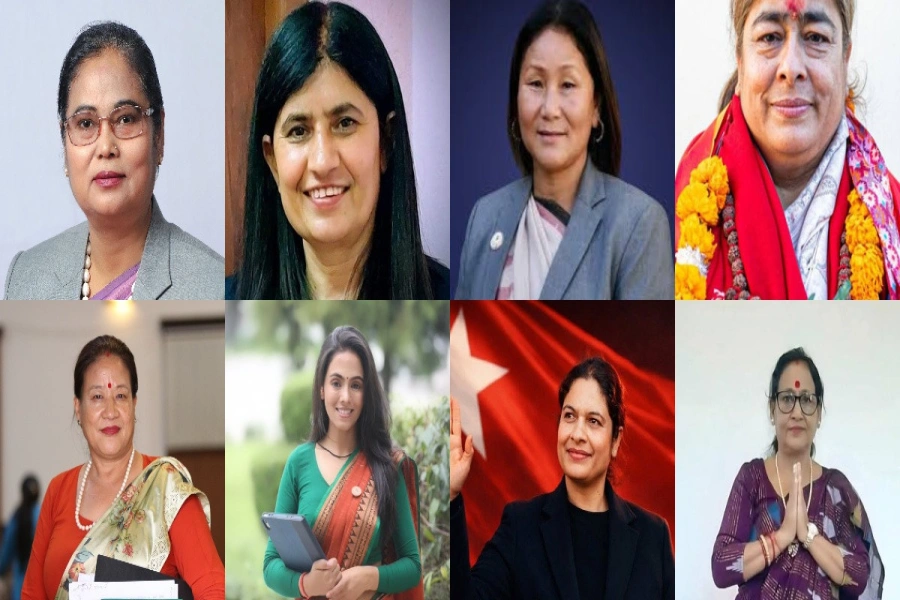Songs are the strongest vehicle for the dissemination of different messages in societies across the world. The melody and metrics they have easily draw the attention of the listeners/audiences to the message they carry. As a result, a song can influence the people with the message it carries easily.
Songs fuel the feelings. Songs are like stimulants and/or catalysts. Religious leaders, politicians, revolutionists, statesmen, aristocrats, social activists etc have appropriated songs to uphold their mottos along the passage of the history of human civilizations. They have stimulated people with their consort of songs. For instance, many songs were composed to uphold and accelerate the spirit of the different social, and political movements/campaigns in Nepal and abroad for the cause of social, cultural, political, and religious ‘transformation’. Different forms of songs are also being used in the present day world to stimulate, motivate, and ‘angelize’ people. ‘Groups seeking civil rights and the protection of working people have frequently used songs as a way of building solidarity, conveying their message, and taking their grievances and goals from the streets to the halls of government (JA Leo Lemay, 1976).’
Most often, the general mass of people believes that songs are all about entertainment and amusement; songs carry the sorrow and sufferings, pleasure and pains of human-kind. It is half-true; they always do not do so. Songs and politics have a strong connection. The nexus between music and politics, particularly political expressions in songs, has been seen in many cultures. Music can express anti-establishment or protest themes, including anti-war songs, but pro-establishment ideas are also represented, for example, in national anthems, patriotic songs, and political campaigns (John Street, 2003).
Rewind 2017: Best Nepali songs

In fact, songs instill a certain belief within you unknowingly, sometimes spontaneously resulting in a point of view developed within you which stimulates to direct toward a prescribed direction or feel/‘realize’ something strongly. This stimulant power of a song makes us feel released or opposed. Songs therefore have been used to materialize the vested interests on the hunch of the people in power and/or people without power. Many popular songs in the Panchayat Era therefore might have been banned because of this reason. Now, let’s say, at this juncture songs stimulate us. Whatever, songs are semiotically and aesthetically open-ended; even a musically illiterate person is able to grasp the rhythmic structure and flow of any song. They can interpret and appreciate songs in their own ways. People feel the music; music is ubiquitous.
Literature is believed to be a mirror of society. There are different genres in literature. Song is a part of it. It is the product of contemporary societies. It brings the contents from the context which it exists in. Authors reflect the societal values, and realities in the genres of literature. Reflection subjects to the perspectives of an individual author. The contents of literature, therefore, naturally become the subject of criticism, and appreciation.
Broadly speaking, literature most often deals with the taboos, stigmas, superstitions, discriminations, issues of politics and cultures that exist in societies. It goes around them through different literary genres for the progressive development of society. It is a facilitative function of literature. Literature, at this point, becomes helpful to enhance social solidarity, social harmony, and social development. Whereas, literature may not always be facilitative; it sometimes may misrepresent the social needs, values, and realities; then, at this time, it may trigger conflicts and chaos, and new discourses in societies. Such literature then may be stamped as ‘bad literature.’
Songs are the strongest vehicle for the dissemination of different messages in societies across the world. The melody and metrics they have easily draw the attention of the listeners/audiences to the message they carry. As a result, a song can influence the people with the message it carries easily. If a song has a ‘positive’ message and has represented the factual societal conditions it refuels the positive energy resulting from social solidarity, social harmony, and social development; it may accelerate the pace of social transformation as a whole. On the other hand, if a song has misrepresented the social needs, facts, and values, then it may lead society to disorder, and stagnant conditions because misrepresentation always misleads the people and society.
Questions are readily raised to the contents of a song if it becomes the perspective of a discord of discussion as: whether the song has represented societal realities in a factual sense? Does the song have social, political, gender, religious biases? Is the song carrying the pleasures and pain, and needs of people and society of the present time? On the basis of these parameters, the lyricists should think before a song goes to air. These parameters may provide some insights to lyricists to review his/her creation before it gets published and criticized. An artist can also review his/her creation on the purpose s/he set behind the creation of any piece of art/literature. But, it does not mean that authors necessarily adopt and adapt the forms and contents of the literary/artistic creations from contemporary societies because literary works are both factual and fictitious.
Under the wider spectrum of freedom of expression, and freedom of conscience, artists can express their thoughts beyond and within the framework of contemporary societies; they use literary/artistic devices to create a piece of art/literature. A noble piece of art/literature provides multiple avenues/perspectives. By using these different avenues, one can review society. Polity and the public can also use them to examine their deeds and doings on the ground of the message generated from a piece of arts/literature because it mirrors societies. Moreover, polity and the public should be capable enough to pick up the best points of view, and maintain equidistance while re/viewing any piece of art/literature.







-1770648553.webp)






























